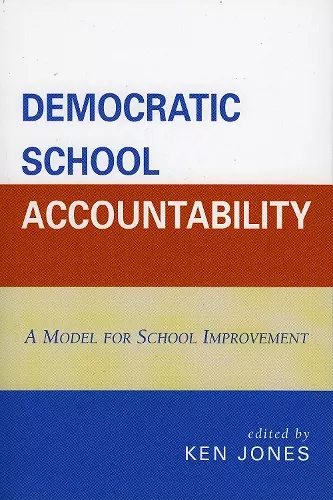Democratic School Accountability
A Model for School Improvement
Format:Paperback
Publisher:Bloomsbury Publishing PLC
Published:8th Jun '06
Currently unavailable, and unfortunately no date known when it will be back

For what, to whom, and by what means should schools be held accountable? What are the purposes and goals of schooling in a democratic society? What can serve as a fair system of quality assurance for schools in a world of change and complexity? Democratic School Accountability addresses such concerns by defining and describing an alternate vision for school accountability. Working from a model adapted from the world of business, the contributors depict dimensions for school accountability based on democratic values and local empowerment. The central premise is that schools, districts, and states should together be accountable for student learning, but also for providing opportunities to learn, being responsive to students, parents, and communities, and developing organizational capacity for high performance. The system described in this book is built on high-resolution information gathering, not high-stakes testing. It proposes and shows examples of using local and multiple methods for assessing student learning, cultivating and sustaining the professional knowledge and skills of teachers, engaging the community in meaningful and empowered decision-making, organizing schools for greater performance, and conducting self-studies and external visitations for monitoring and fostering high quality schooling within the local context. This book encourages readers to step out of the box of the current approach to school accountability and to reframe the very concept of accountability so that it may truly serve as a positive force for school improvement and renewal. It is a hopeful expression of what could be.
Better schools and real accountability are indeed possible and necessary. But we cannot achieve this through threats, bribes or fixation on testing. In Democratic School Accountability, Ken Jones and his co-authors give voice to caring educators and offer a sensible and promising alternative to the prevailing and wrong-headed policies. It's about time. -- Adam Urbanski, president, Rochester (NY) Teachers Association; vice-president, American Federation of Teachers; director, Teacher Union Reform, Founding Director of the Teacher Union Reform Network
We owe our students and our teachers something better than what is done through high-stakes, standardized testing schemes of accountability. Our students and our teachers deserve something that measures learning, provides immediate and empowering feedback, and something that is part of a systemic approach to improvement that leads from the classroom up and the classroom out and is supported and celebrated as the center of the real work of accountability. Dr. Jones' model is one every school should consider and the book is a must read for all leaders of learning—teachers, principals, superintendents and policy leaders. -- Doug Christensen, Nebraska Commissioner of Education, emeritus commissioner of education (Nebraska), professor of leadership in education, graduate division, Doane College
This is just the book we need to start the discussion we've not been engaged in: accountable for what? In this modest—but critically important—book we have the chance to explore this from the bottom up and the top down. What a relief, and how thought-provoking. Each chapter builds upon the last, culminating in a different but eminently practical way of opening up new possibilities. -- Deborah Meier, MacArthur Award-winning founder of the Central Park East Schools in New York and the Mission Hill School in Boston
Jones and co-authors describe a new model for school accountability that provides a more nuanced alternative to the present system of using high-stakes testing. ... Particular emphasis is placed on the importance of schools being held accountable to their primary stakeholders: students, parents, and the local community. * Reference and Research Book News *
Those who care about improving public education should read this book. In contrast to much of what passes for 'accountability' these days, it paints a vivid, on-the-ground picture of the kind of system that could provide a 'full, complex, and high-resolution picture' of how schools are actually doing—and help them support rich and rigorous learning for all of their students. -- Linda Darling-Hammond, Charles E. Ducommun Professor of Education, Stanford University
ISBN: 9781578864638
Dimensions: 227mm x 177mm x 20mm
Weight: 413g
272 pages